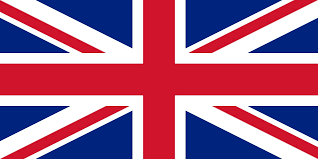When organic becomes an inspiring wellbeing lifestyle
For Tyna Huynh, co-founder of Drinkizz, organic is not just a food choice but a way of life that fosters a deep connection between people, nature and community.


TheLEADER Magazine
The Business Leaders Forum of Vietnam Association of Corporate Directors (VACD)
Website: www.theleader.vn (Vietnamese); e.theleader.vn (English)
Editor-in-Chief: Nguyen Cao Cuong
Deputy Editor-in-Chief: Tran Ngoc Son
Hanoi Head Office: 2nd Floor, Building No. 5, Alley 535, Kim Ma Street, Ba Dinh District, Hanoi, Vietnam
Tel: (024) 3244 4359 - Hotline: 08887 08817
Email: toasoan@theleader.vn (Vietnamese); editor@theleader.vn (English)
ISSN: 2615-921X
Despite attracting a large number of customers, private label products will not be displayed in Big C’s supermarkets anymore to pave way for Thai goods.

Big C, a big supermarket system in Vietnam with 33 supermarkets and 10 grocery stores, has announced it will stop selling more than 1,000 private label products. A Thailand-based firm recently purchased Big C’s operations in Vietnam, and decided to stop selling private label goods is expected to pave the way for Thai products at the expense of Vietnamese ones.
TheLEADER had a talk with Vu Vinh Phu, Chairman of the Hanoi Supermarket Association, on this issue.
Vu Vinh Phu: According to a Big C’s representative, the system will support Vietnamese enterprises, especially the local small and medium-sized enterprises (SMEs), to develop their products and set up their own brands through the Accompanies Vietnamese Brands program.
However, I feel a doubt over this announcement as it may pave way for Thai products to enter the system, especially when BigC belongs to Thai tycoon Charoen Sirivadhanabhakdi.
This is somehow understandable because when investing in a foreign country, Thai people will obviously want to prioritize their products. Meanwhile, Thai goods have more advantages and the wave of Thai goods to Vietnam has developed and become larger for recent years.
Thai leaders have announced that they will turn Thailand into a center of vegetables and consumer goods production and export in the region.
Currently, Thai market is becoming too saturated with high production capacity. Also, the export tax in Thailand goods is zero per cent, which is very convenient for them to enter foreign markets.
Meanwhile, Thai products are attracting a huge number of Vietnamese customers due to their good quality, eyes catching labels, effective marketing, and distribution system. Vietnamese firms will likely find too challenging to compete.
Vu Vinh Phu: I think that they should focus on improving their labels and technology to produce better and cheaper products.
This process will be tough and take up to five to ten years but Vietnamese enterprises must not give up.
The acquisition of market share by foreign retailers is partly because domestic enterprises have failed to adapt. As a result, domestic products are less attractive to consumers.
Vietnamese managers always affirm that Vietnamese goods account for 80-90 per cent of market share. However, I am not sure whether this is true. It seems that our firms have not changed much even as the market has evolved over dozens of years.
Currently, the products that are still displayed in Big C are agricultural and food products. Other kinds of goods are mostly replaced by Thai, Chinese and Japanese goods.
Vu Vinh Phu: The Ministry of Industry and Trade should create favorable conditions in terms of mechanisms and policies, especially cutting down sub-licenses that hinder enterprises.
We are 70 per cent killing ourselves with unclean production, the ineffective administration that cannot promote production. Therefore, both enterprises and the State must change and develop or else after next five years, the worse scenario will happen.
For Tyna Huynh, co-founder of Drinkizz, organic is not just a food choice but a way of life that fosters a deep connection between people, nature and community.
Embracing respectful workplaces could very well be the key to unlocking a more prosperous future for Vietnam's garment industry.
Vietnamese businesses have had a long journey with great achievements, and this path will continue and blossom in years to come.
While some jobs are expected to be replaced by emerging AI applications, the technology is broadly seen as a catalyst for positive transformation in the workforce.
The energy transition is bringing forth new challenges, particularly in refining financial systems.
Alex Hambly talks about investment opportunities in Vietnam following his appointment as chief investment officer (CIO) of VinaCapital.



